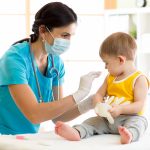
Pregnant and postpartum women are dying of drug overdoses in record numbers, and the COVID-19 pandemic has only made things worse, a new study shows. Deaths increased about 81% over the past four years, hitting a record high in 2020, according to researchers from Columbia University Mailman School of Public Health in New York City. “We’ve seen significant increases in fatal and nonfatal overdose in the general population during the pandemic,” said first study author Emilie Bruzelius, a doctoral student at Columbia. “It now appears that pregnant and postpartum women are being affected as well.” The researchers used national death certificate data, which lists whether someone was pregnant or recently pregnant, for the years 2017 to 2020. The investigation included calculating annual overdose death rates and examined the specific drug types involved in each overdose, then comparing those to overdose death rates in non-pregnant women of reproductive age. They found a total of more than 7,600 pregnancy-associated deaths. More than 1,200 of these were due to drug overdose. Overdose deaths spiked to a record high of just over 11.9 per 100,000 in 2020. This compares to a 38% increase among all reproductive-age women. Researchers found large increases in deaths involving fentanyl, methamphetamines and cocaine. Deaths from benzodiazepines, heroin and prescription opioids remained stable. “Pregnant and postpartum people are known to face barriers to accessing drug… read on > read on >


















